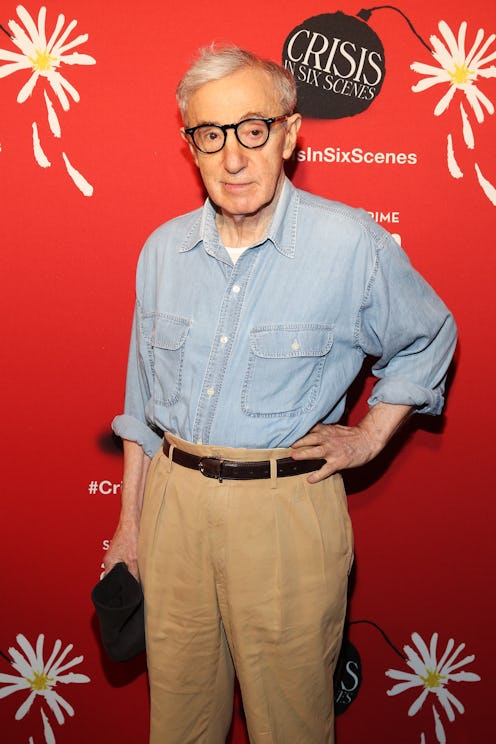Entertainment
This 'Cafe Society' Fact Is Surprising
In Hollywood, it's not uncommon to hear that someone is a "triple threat," an actor, singer, and dancer. But another, less common type of "triple threat" is the writer, director, and actor. They may be rare, but they exist. Artists like Quentin Tarantino, Ben Affleck, and Angelina Jolie can all claim the "triple threat" title, but only a few people in Hollywood can transcend even that label and become a "quadruple threat." But Woody Allen does that, writing, directing, and sometimes starring in his films — and also, occasionally, narrating them. Allen is the narrator of Cafe Society, his newest film, and, like usual for him, he both wrote and directed it. Allen is the narrator of Café Society, as well as writing and directing it.
As said, this isn't Allen's first foray into narration. Previously, he's narrated Radio Days, Annie Hall, and Manhattan. With the latter two movies, Allen starred, directed, and provided voice-over. His characters tend to be NYC-based, semi-neurotic middle-aged men with the voice-overs acting as journal entries as much as they act as the viewers' guide into the world of the film, so it makes some sense that he'd be the one actually providing the narration. Allen's movies usually have threads about love, in its various forms, and the voice-overs and narration he provides often speak to the more nuanced parts of the stories.
It may be pretty abnormal for a director to provide the narration to his or her own film, but in Allen's case, since he often also has written the film, one could argue his voice is best suited to narrate his directorial and written vision. It can even be argued that typically, his protagonists are extensions of Allen himself. Therefore, utilizing his own voice as the narration only adds to the characters and helps solidify and ground them as real, as opposed to just a figment of a writer's imagination.
With Café Society, though, the film takes place in the 1930s, so its pretty evident that it won't be semi-autobiographical. That doesn't mean, however, that the main character Bobby (played by Jesse Eisenberg) isn't a version of Allen himself. Bobby is a fast-talking, neurotic man who travels to Hollywood to work for his uncle (Steve Carell), and in the midst of his Hollywood adventure, he falls in love with his uncle's secretary, Vonnie (Kristen Stewart). There are definitely elements of Allen in Bobby, and viewers will enjoy seeing how much of a stand-in Eisenberg seems for the filmmaker.
It seems that Café Society, like so many of Allen's other films, will focus on the meaning of success, finding oneself, and coming to terms with love and the devastation it can sometimes leave in its wake. Regardless of your opinion on Allen as a person, it's hard to deny that he is a hugely accomplished artist, and the work he creates often resonates beyond the end of the film.
